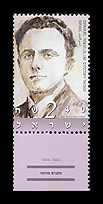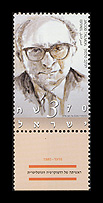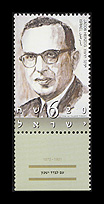|
The academic study of the history of the Jewish people began only in the 19th century. Unfortunately this was the case because the Jews were dispersed over many countries, many literal works were lost during the pogroms and whilst wandering from place to place, and the traditional Jewish community did not pay much attention to the subject. Historical research developed largely only after the establishment of the State of Israel. The change in Europe in the 19th century was due to the struggle of the Jewish people for equality rights, the conflict between the religious factions (mainly between the reform and orthodox Jews), the influence of Jewish studies and the rise of national sentiments. The majority of Jewish historians felt they had a mission and had faith that their research would contribute to the understanding of the situation of the Jewish people, separated and dispersed amongst other nations. Some of the historians were also active in the cultural and social life of the Jewish community where they lived and participated in controversial debates. By spending time on current affairs, historians were deflected from research. On the other hand however, their involvement in the community sharpened their senses and encouraged them to continue research that was, for many, very difficult and complex due to the limitations of sources.
This stamp series is dedicated to seven of these historians. Four historians were depicted on stamps in April 2002: Yitzhak Baer, Henrich (Zvi) Graetz Simon Dubnow and Benzion Dinur. Both those historians who were active in Europe and those who emigrated to Eretz Israel participated in the process of building the land and the Jewish state. These particular historians were chosen to emphasize the variety of their work, express their involvement in social and state issues and how they greatly contributed to the strengthening of Jewish national sentiments and to the increasing affinity with cultural traditions and the land of Israel.
Emmanuel Ringelblum (1900-1944, Poland)
Ringelblum was the historian of the Warsaw Ghetto. He published articles on the Jews of Warsaw emphasizing the economic and social aspects. He edited the Yiddish periodical "The Young Historian". He combined academic and political activities. Ringelblum organized relief and aid operations in Warsaw whilst, with the help of tens of volunteers, collecting and recording information about the anti-Jewish events in Poland. This is how he gathered a great deal of valuable historical material about life in the Ghetto and the Nazi crimes. He wrote a number of books including "Notes from the Warsaw Ghetto". Ringelblum was one of the leaders of the Warsaw Ghetto underground and was murdered with his family by the Nazis in 1944.
Jacob Talmon (Poland 1916-Israel 1980)
Talmon was one of the important historians of Israel after the state was established. He studied at the universities of Jerusalem, Paris and London. In 1949 he was appointed lecturer in History at the Hebrew University of Jerusalem and in 1967 he was elected to The Israel Academy for Sciences. Talmon wrote many books and articles on the history of ideas, social and political trends and the influence of national and ideological myths on political regimes. He paid attention in researching the roots of the social and political movements that were active the 19th and 20th centuries such as totalitarianism, communism and liberalism. In 1955 his book on the beginnings of totalitarian democracy was published and became very well known. Talmon wrote essays on statesmen who believed they had a mission. He took an active part in the public and social battles in Israel including state and religion, the question of Jewish identity and the Arab-Israel conflict.
Jacob Herzog (Ireland 1921-Israel 1972)
Herzog was a politician and historian. In 1963 he received a doctorate in international law from the University of Ottawa. Herzog was a member of the Hagana (Jewish Defense Forces) and was personal assistant to his father, Chief Rabbi in Eretz Israel, Rabbi Yitzak Issac Halevi Herzog. With the establishment of the State, Herzog fulfilled important positions including Ambassador in Ottawa and Director of the Prime Ministers Office. He was known for his argument with the English historian, Arnold Toynbee on the existence of the Jewish people and their right to a state. Herzog acted as state advisor to four prime ministers: David Ben Gurion, Moshe Sharett, Levi Eshkol and Golda Meir. He took part in the secret meetings that were held with King Hussein. He was the author of a number of books including "A People that Dwells Alone" in which he described the historical discussion concerning the international situation of the State of Israel.
Professor Avraham Grossman
Department of History of, the Jewish People
Hebrew University, Jerusalem.



